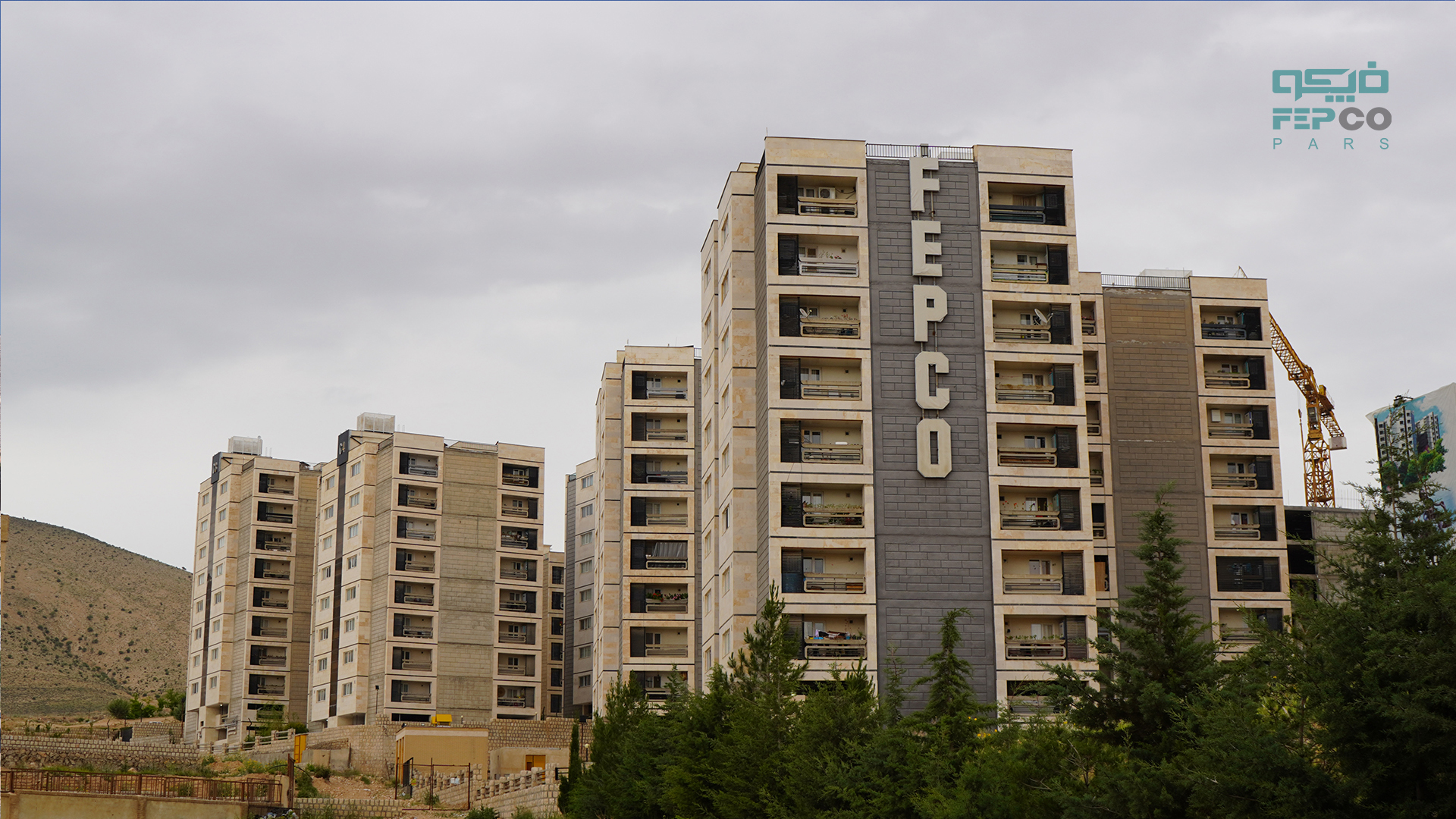This article has been prepared and compiled by the Research and Development Unit of fepco ( Saman Mechanic Farayand Energy Pars ). This research aims to thoroughly examine the challenges associated with off-plan property sales and provide solutions to prevent the sale of a single unit to multiple buyers.

Off-plan property sales are a common method in the real estate market that can offer numerous benefits to both parties involved, namely the seller and the buyer. However, this method can be fraught with challenges and problems, the most significant of which is the risk of selling the same property multiple times to different buyers. This issue can lead to fraud in off-plan sales and substantial financial losses for buyers.
This article examines the legal and practical challenges of off-plan property sales and discusses methods to prevent repeated sales and fraud in off-plan transactions. It also reviews the laws and regulations governing off-plan property sales and highlights key considerations that should be addressed in pre-sale contracts to avoid future problems and disputes.
Our goal in presenting this article is to increase awareness and provide practical solutions to prevent issues related to off-plan property sales and ensure the security of real estate transactions. We hope this research can serve as a useful reference for professionals in the real estate sector.
Definition of pre-sale Property
Off-plan property sales refer to the process where a property or unit that is not yet fully constructed or is still under construction is sold to a buyer. In this case, the buyer pays a portion of the agreed price before the completion and final delivery of the property, with the remaining amount possibly paid in subsequent stages or upon delivery.
Benefits of pre-sale Property for Sellers
- Financing the Project: One of the most important benefits of pre-sales for the seller is securing the financial resources needed to complete the project. These funds are obtained through buyers’ down payments, helping the seller advance the project without the need for high-interest bank loans.
- Reducing Financial Risk: By selling a portion of the properties off-plan, the seller has a part of the necessary capital for project completion, thus reducing the financial risk of the project.
- Early Marketing and Sales: Off-plan sales allow for early marketing and attracting buyers before the project is completed. This helps the seller better identify and exploit their target market.
- Increasing Investor Confidence: Successful off-plan sales can demonstrate high demand for the project, potentially increasing investor confidence.
Benefits of Off-Plan Property Sales for Buyers

- More Favorable Prices: One of the main benefits of buying off-plan for buyers is the lower price compared to buying a ready property. Typically, property prices during the early stages of construction are lower than when the project is fully completed.
- Customization Options: Off-plan sales allow buyers to customize the property according to their preferences before completion.
- Long-Term Investment: Purchasing property at the off-plan stage can be seen as a long-term investment with high returns, as property values generally increase after the project is completed.
- Flexible Payment Terms: Sellers usually offer more flexible payment terms for off-plan properties, which can be attractive to buyers who do not have the full liquidity for an immediate purchase.
Off-plan property sales, as a significant financial and marketing tool in the construction industry, offer substantial benefits to both parties but require careful consideration and review of contracts and conditions due to associated risks.
Necessary Actions in Various Stages from Off-Plan Sale to Final Delivery to Enhance Security and Reduce Risks
These actions help protect the rights of buyers and sellers and prevent fraud and legal issues:

- Official Registration of Off-Plan Contracts
- Registration at Notary Offices: Off-plan property contracts must be registered at official notary offices to have legal validity. This ensures that contracts are traceable and provable in legal proceedings.
- Use of Official Documents: Using official documents instead of informal ones significantly reduces the risk of fraud and multiple sales of a property.
- Checking the Status of the Property and Seller
- Verification of Property Registration: Before purchase, buyers should obtain a registration status report from the relevant land registry authority to ensure the property does not have legal issues or disputed ownership.
- Checking the Seller’s Background: Reviewing the seller’s background, including construction companies and their previous projects, helps ensure the seller’s credibility.
- Drafting Comprehensive and Accurate Contracts
- Clear and Specific Terms: Off-plan contracts should include clear and specific terms for all aspects of the transaction, including final price, payment schedules, delivery date, and precise property details.
- Provision for Guarantees and Penalties: The contract should include financial guarantees from the seller and penalty conditions in case of delays or discrepancies with the agreed property conditions.
- Consulting Legal and Real Estate Experts
- Legal Consultation: Having a specialized real estate attorney involved in contract drafting and transaction processes can help prevent legal issues.
- Consulting Real Estate Experts: Using advice from certified appraisers or reputable real estate consultants for property valuation and condition assessment provides buyers with added assurance.
- Monitoring Project Status
- Checking Building Permits: Ensuring that the project has valid building permits and necessary approvals from relevant authorities is crucial.
- Project Progress: Buyers should regularly visit the project site to ensure construction progresses according to the initial plan.
- Secure Payment Mechanisms
- Stage Payments: Structuring payments in stages and based on specific project milestones enhances financial security for buyers.
- Using Escrow Accounts: Utilizing escrow accounts to hold buyers’ funds until the construction and delivery stages are completed can prevent financial risks.
- Legal Follow-ups in Case of Issues
- Approaching Legal Authorities: In case of any violation or issue during the off-plan sale, buyers should promptly approach the relevant legal authorities and assert their rights.
- Exercising the Right to Cancel: If the seller fails to meet their obligations, buyers should exercise their right to cancel the contract and request a refund of the paid funds.
- Buyer Awareness and Education
- Buyer Education: Increasing buyers’ awareness of off-plan property sales regulations, safe purchase procedures, and their rights can prevent many issues.
- Using Reliable Information Sources: Buyers should rely on information and advice from credible sources such as official websites, judicial authorities, and industry associations.
These actions can help increase the security of off-plan property transactions and reduce associated risks, protecting the rights and interests of both buyers and sellers.
Real estate pre-sale contracts can face multiple challenges, which can create problems for both parties involved in the transaction—the seller and the buyer.
Key Challenges of Pre-Sale Contracts:

1. Lack of Clarity in Contract Terms
– Ambiguous Conditions: Some pre-sale contracts may have ambiguous or unclear terms, making them difficult for both parties to understand and interpret. This can lead to disputes during various stages of the contract’s execution.
– Lack of Detailed Information: Many pre-sale contracts do not fully detail the property, construction materials, technical specifications, and payment methods, which can cause issues in the future.
2. Delays in Project Completion
– Construction Delays: A common challenge in pre-sale contracts is delays in project completion and property delivery. These delays may result from the seller’s financial issues, changes in laws and regulations, technical problems, or other factors.
– Penalties for Delays: The absence of precise provisions regarding penalties for delays or lack of agreement on the amount of these penalties can lead to disputes and dissatisfaction among buyers.
3. Non-Conformance of Property to Agreed Specifications
– Non-Compliance with Technical Specifications: In some cases, the final property may not conform to what was promised in the contract or advertisements. This can include changes in area, material quality, or interior design.
– Failure to Meet Standards: Sometimes, the delivered property may not meet the buyer’s expected standards, leading to dissatisfaction and potential legal claims.
4. Legal and Ownership Issues
– Existing Debts or Liens: The pre-sold property may have existing debts or be mortgaged, which can cause legal problems for the buyer.
– Conflicting Ownership Claims: If the ownership of the property is not clearly established or the seller is not legally authorized to sell the property, it can lead to complex and prolonged legal issues.
5. Multiple Sales of a Single Property
– Selling to Multiple Buyers: One of the biggest risks in pre-sale contracts is selling a unit to multiple buyers. This issue can lead to lengthy and complex legal disputes between buyers.
– Lack of Official Registration of Contracts: If pre-sale contracts are not officially registered with notaries, the likelihood of such frauds increases.
6. Changes in Price and Economic Conditions
– Inflation and Rising Costs: Changes in economic conditions, including inflation and increased construction costs, might force the seller to raise the property price or alter payment terms, potentially leading to disputes.
– Buyer’s Financial Inability: In some cases, buyers may be unable to meet the agreed installment payments due to economic changes, which can result in contract termination or loss of the initial investment.
7. Lack of Supervision and Enforcement of Laws
– Insufficient Project Supervision: In some cases, a lack of adequate supervision by relevant authorities over pre-sale projects can lead to non-compliance with regulations and standards by the seller.
– Improper Enforcement of Laws: If laws and regulations related to pre-sales are not properly enforced, it can benefit the seller and disadvantage the buyer.
8. Issues with Delivery of Ownership Documents
– Delayed Delivery of Documents: A common issue in pre-sale contracts is the delay or failure to deliver ownership documents to the buyer after project completion, which can cause legal and financial problems for the buyer.
– Registration Problems: In some cases, registration issues such as boundary disputes or changes in maps can delay or even prevent the delivery of ownership documents.
These challenges indicate that, despite the benefits, real estate pre-sales require careful consideration and detailed examination by both parties involved. Selecting a specialized legal advisor, thoroughly reviewing contract terms, and using legal and regulatory mechanisms can help mitigate these challenges.
Conclusion
One of the most significant challenges discussed in this article is the issue of multiple sales of properties and fraud in pre-sales, which can lead to serious problems for both buyers and sellers. To address this challenge, it is recommended to prevent duplicate sales by drafting pre-sale contracts with precise and transparent terms, officially registering these contracts with notary offices, and verifying the property’s registration status.
Furthermore, transaction security is a crucial aspect to consider when purchasing a residential unit. Legal and practical measures to prevent the sale of a property to multiple buyers, such as using escrow accounts and closely monitoring project progress, can significantly reduce the risks associated with pre-sales.
This article also highlights the legal challenges in pre-sale properties, which can be managed by enhancing pre-sale transaction security and adhering to real estate pre-sale laws and regulations. Examining the challenges of pre-selling residential units and providing ways to prevent the resale of a property multiple times are key objectives of this research.
In summary, important considerations in real estate pre-sales include adhering to all legal and regulatory requirements, consulting legal advisors, and thoroughly reviewing project conditions to ensure secure sales and protect the rights of both buyers and sellers. This research underscores that by adopting preventive measures and using methods to avoid repeated property sales, many pre-sale problems can be prevented, thereby ensuring transaction security. The importance of addressing legal and regulatory issues in real estate pre-sales has been clearly demonstrated in this research conducted by the Research and Development unit of Fepco ( Saman Mechanic Farayand Energy Pars ).
Frequently Asked Questions
1. What is real estate pre-sale and why should we pay attention to it?
Real estate pre-sale refers to the process of selling a property that is either not yet built or under construction. This method allows the seller to finance the project and provides the buyer with the opportunity to purchase the property at a lower market price. However, due to associated risks such as the possibility of multiple sales of the property, careful attention and diligence are required.
2. How can we prevent the sale of a property to multiple buyers?
To prevent the sale of a property to multiple buyers, it is essential to have the pre-sale contract officially registered with notary offices and for the buyer to verify the property’s registration status. Additionally, choosing reputable sellers and using escrow accounts for payments can increase transaction security.
3. What factors cause challenges in real estate pre-sales?
Challenges in real estate pre-sales can include delays in project completion, multiple sales of a property, discrepancies between the property and agreed specifications, and legal or ownership issues. Thoroughly reviewing contract terms, seeking legal advice, and ensuring official registration of contracts can help mitigate these challenges.
4. What should I do if I discover that the property I pre-purchased has been sold to someone else?
If you find that the property you pre-purchased has been sold to another person, you should immediately contact legal authorities to defend your rights. Consulting with a real estate attorney can also assist in legal follow-up and resolving the issue.
5. What points should be considered in a pre-sale contract?
The pre-sale contract should clearly outline the property details, delivery schedule, payment terms, warranties and penalties for delays, and termination conditions. Ensuring official registration of the contract with notaries and verifying the property’s registration status are also crucial.
6. How can I ensure the security of a pre-sale transaction?
To ensure transaction security, you should verify the seller’s credibility, have the contract officially registered with a notary, and seek assistance from legal advisors and real estate experts. Using escrow accounts to hold funds until project completion is also recommended.
7. What guarantee is there that the delivered property will match the contract specifications?
To ensure that the delivered property matches the agreed specifications, you can hire independent experts to review the construction progress and property quality. The contract should clearly specify all conditions and details, and any changes should be mutually agreed upon and documented in writing.
8. Can pre-purchasing property pose risks due to economic conditions?
Yes, economic conditions such as inflation and market fluctuations can pose risks for pre-purchasing property. The seller might request changes in payment terms or price increases due to rising costs. To mitigate these risks, the contract terms and payment conditions should be carefully reviewed and negotiated.
9. How can I avoid legal issues in real estate pre-sales?
To avoid legal issues, consult with a specialized real estate attorney, ensure the contract is officially registered with notaries, and verify the property’s registration status. Paying attention to contract details and termination conditions is also important.
10. Can I change the interior design or technical specifications of a pre-sold property?
Yes, in many cases, changes to the interior design or technical specifications of the pre-sold property can be made, but these changes must be agreed upon with the seller and within the framework of the contract. Any modifications should be documented in writing and added to the contract.



